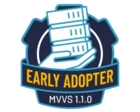We have a number of these type instructions in our programs. Another example is ACCOUNT=FIELD(OCONV(0,"U50BB")," ",2).
Is there something in the docs that describes what they are and what they do?
------------------------------
Nelson Schroth
president
C3CompleteShop LLC
Harrison OH US
------------------------------








